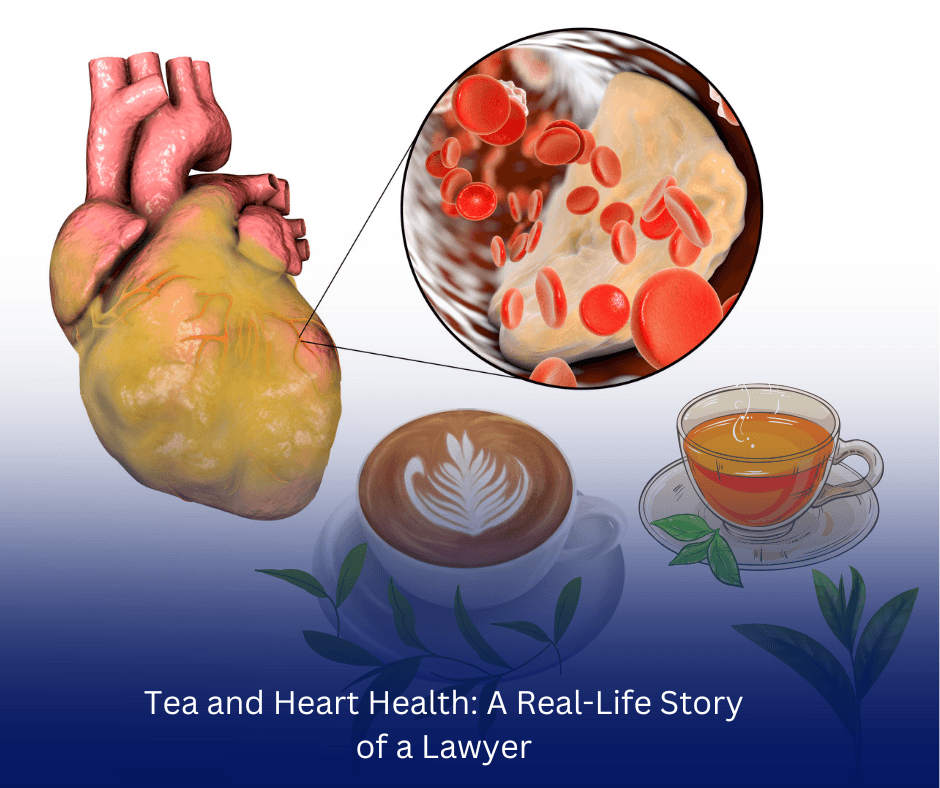Tea and Heart Health: A Real-Life Story of a Lawyer
Tea and Heart Health: A Real-Life Story of a Lawyer
By Dr. Amit Singh, Cardiologist
Tea is one of the most commonly consumed beverages in the world, often praised for its health benefits. However, excessive consumption can sometimes have unexpected consequences. This is the story of Anil Mehta (name changed for privacy), a 45-year-old lawyer from Navi Mumbai, whose habit of drinking multiple cups of tea every day led to a surprising turn in his heart health.
Anil’s Story: A Case of Overindulgence
Anil had a demanding career as a lawyer, spending long hours preparing cases, attending court sessions, and managing clients. To stay active and focused, he developed a habit of consuming six to eight cups of tea daily. Over time, he started experiencing frequent palpitations, restlessness, and occasional dizziness.
One evening, after an intense court session, Anil felt an unusual tightness in his chest accompanied by an accelerated heartbeat. Concerned, he immediately consulted a cardiologist, fearing a serious heart condition.
The Link Between Tea and Heart Health
After thorough medical examinations, including ECG and stress tests, doctors ruled out any major heart disease. However, they found that Anil’s excessive tea consumption was contributing to his symptoms. Some key factors included:
- High Caffeine Intake: Tea contains caffeine, which can cause an increase in heart rate and palpitations when consumed in excess.
- Dehydration: Too much tea can lead to mild dehydration, affecting blood pressure levels.
- Stress & Lifestyle Factors: The combination of work stress and excessive tea consumption amplified his symptoms.
Anil’s Recovery and Lifestyle Modifications
To regain his heart health, Anil made several important changes:
- Reduced Tea Intake: He limited himself to two cups of tea per day.
- Switched to Herbal Alternatives: He replaced some tea servings with herbal infusions that had calming effects.
- Improved Hydration: He increased his water intake to counteract any dehydrating effects.
- Balanced Diet: He incorporated heart-friendly foods, reducing sugar and processed snacks that often accompanied his tea breaks.
- Stress Management: He adopted yoga and meditation to manage work-related stress effectively.
Lessons to Learn
Anil’s story highlights an important lesson: while tea has numerous health benefits, excessive consumption—especially when combined with stress—can impact heart health. To enjoy tea safely:
- Limit caffeine intake to moderate levels.
- Stay hydrated by drinking enough water.
- Choose healthier alternatives like green tea or herbal infusions.
- Balance tea consumption with a nutritious diet and an active lifestyle.
Conclusion
Tea, when consumed in moderation, can be beneficial for heart health. However, excessive intake, combined with stress and poor lifestyle habits, can contribute to heart-related symptoms. If you experience irregular heartbeats or unusual symptoms, consult a cardiologist to ensure your heart remains in good health.








